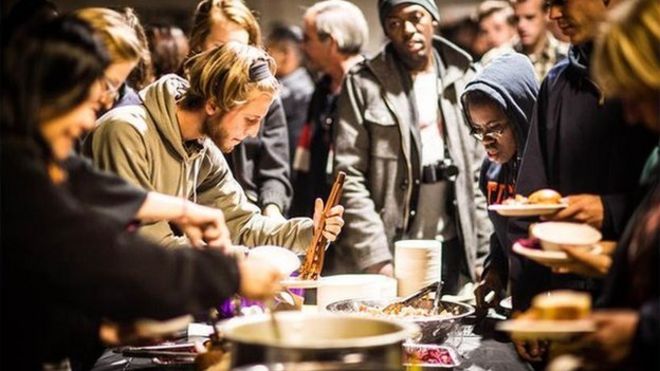Digital Exeter Makes
you think!
Last Thursday week the brilliant Laura Rose and I went along to
the fledgling Digital Exeter meeting. The meeting was well attended and all the
speakers were fun and thought provoking. Laura views such events as a sand pit
for learning and applying tactics and she has kindly shared her thoughts below.
My focus is always on the development and social science
aspects of meet ups and what will happen next – there’s a separate blog coming
on that one.
Laura Rose - What I
learnt at Digital Exeter
From the RAMM museum presentation I learnt that you've got
to really segment your audiences and have clear objectives about what you want
to achieve with them from the very start. It was unclear whether encouraging
footfall to see the physical museum collection or getting people to engage with
the museum about their archive collection were RAMM's primary objectives. You
could see the danger of trying to target too many audiences with the same
homepage and structure.
From copy dojo
I'd learnt about
clever things you can do when copywriting to engage your audience from using
calls to active language. But I questioned the notion of 'social proof' and the
evidence behind it. I think there is a real difference between a company saying
"I have millions of users" and somebody who I socially identify with,
like a friend, recommending a company or brand as an intermediary or brand
advocate.
From Jasper at
Borders
I learnt about the
changing world of in digital app development and just how many are dead to
users after the initial download. We discussed the difference between
generating content for an app, or any other digital platform, and using apps
and digital platforms for distributing messages about that content, and the
clash of that this can create between editorial and advertising teams within
companies that have an app of their own.
What I will do
I'll consider tailored landing pages on WordPress websites
to target a specific audience and repurposed content on the website for that
audience and focus on their user needs.
I will also think carefully about the role that apps and
other digital platforms play within whole digital strategy to keep users
re-engaging with our app or organisation.
I'll also be keeping an eye out for developments in push
notifications to see whether we can make them smarter to target our audiences
at the times they want information from us not when we want to give it
out!
Thanks Laura!
Next time I'll be talking about forming communities, what the recipe is and why you can't force form one. Cheers,Joe










